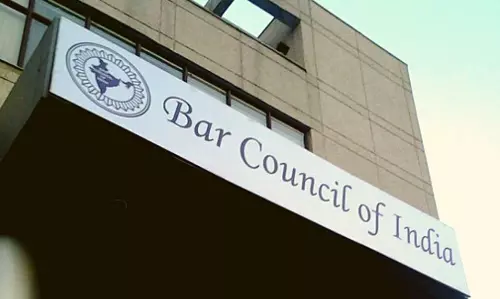
Greenpeace India imbroglio
text_fieldsThe Union government decision of barring the international environment campaign group, Greenpeace India, from receiving foreign funds by suspending its license for six months and freezing seven of its bank accounts, has spurred debates.
The Home Ministry said that the group that has been campaigning on air, energy and food issues had "prejudicially" affected India's public and economic interests "in violation" of the Foreign Contribution Regulation Act. The group was also served a notice by the government which said that the license of the organization would be cancelled permanently if it fails to make a satisfactory presentation to the government. The seven accounts in IDBI Bank, ICICI Bank and Yes Bank have been frozen with immediate effect. The Centre accused Greenpeace India of encouraging “anti-development” activities by ‘misreporting their funds and using the unaccounted foreign aid to stall crucial projects’. The government had carried out a six month long investigation on the activities of the NGO and said that the foreign funds were used "to influence and lobby for the formation of government policies".
The campaigners reacted strongly saying that the government was upset by the group highlighting the environmental issues and their consequences which would stand as an obstacle in the way of corporate interests. The group said that it wouldn’t be "cowed" down by a "campaign against dissent" and is seeking legal advice on the matter. It termed the government action as a "smear campaign” vowing to continue work towards clean air, water and inclusive development in India. Greenpeace India activist Priya Pillai, was barred by the government from travelling to the UK few months ago inviting controversies. The Delhi High Court had questioned the home ministry's decision to prevent Pillai from travelling abroad. Greenpeace India asserts that it had received more funds from "sources within India" coming up to 70 percent than from foreign sources and that there was nothing illegal in collecting and utilizing the funds including that received from abroad. The group also said that it does not accept money from corporations or government entities. The organization should be given an opportunity to present explanations from their side. The group campaigns against the “anti-developmental” activities that cause environmental destruction, assembles people against the corporate moves and conduct awareness campaigns. But the Centre has always been shown intolerance towards the organizational activities.
The government move hints towards dangerous scenario where suppressing the democratic discrepancies and organizing people against corporates are seen as a crime. Investigations could be carried out against the activities of the NGO and legal action should be taken for any illegal move. But the government decision plainly indicates an aversion towards the group. Despite the allegations presented by the government, the investigation reports submitted are contradictory and illogical. The activities and the campaigns that pose a threat towards the corporate interests are always suppressed by the government through smear campaigning. The Intelligence Bureau (IB) last year submitted a report to the Centre about the “criminal activities” of the NGO including strongly opposing the genetically modified crops. It had strongly criticised Greenpeace India.
The activities of the NGO stand in the way of anti-public “development” and against the succumbing of the government before the corporates. The Home Ministry froze the funds based on an inquiry report in last September. Another main opponent of Greenpeace India is the Adani group. The NGO had campaigned against Adani Group’s $16 billion investment in an Australian coal mine, saying that the project was economically unviable and threatened the local ecosystem. Following the protest, a dozen companies had withdrawn their investment from the project. The judiciary had critisised the Centre’s move against Greenpeace India. The government moves citing national security and democracy are plain instances of eliminating the obstacles from the way of corporate motives rather than public interest. Laws are repudiated and the “”voices if dissent” are silenced.























